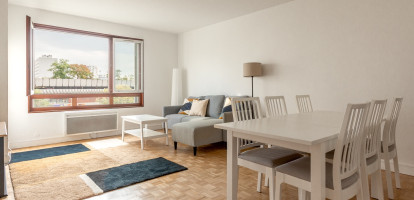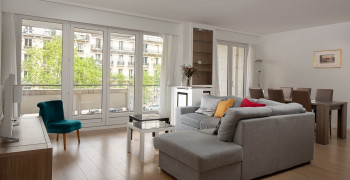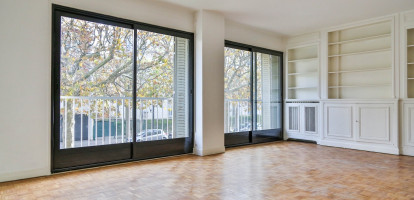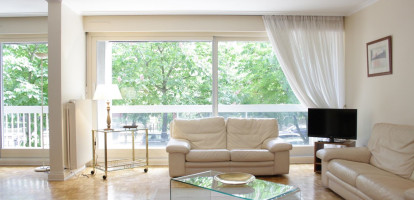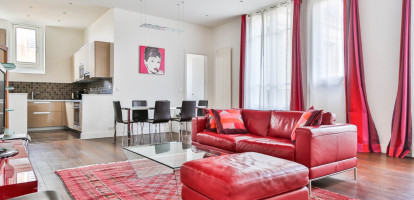A rental contract—known as a "bail" in French—is a legally binding agreement between the landlord (lessor) and the tenant (lessee). This document outlines the rental terms and conditions, including both tenant and owner's rights and obligations, providing a sense of security and protection for both parties.
A written agreement is not just a formality; it's a legal requirement for rental in France. If a property owner rents their property without a written contract, they could face serious consequences: a fine of up to 20,000 euros and a possible one-year prison sentence. This new law, introduced by Law No. 2024-322 on April 9, 2024, applies to all landlords and is designed to crack down on abusive practices.
Landlords must ensure their rental contracts include up-to-date information and meet legal standards. For example, the property's energy performance (DPE) certificate is a crucial aspect to pay attention to. Failure to comply with these requirements could result in penalties under the new law.
The lease is drawn directly between the owner and the tenant or by the real estate agency. Sometimes, a notary (notaire) may also be involved. It's important to note that the landlord and the tenant must keep a copy of the contract for their records.
Critical Elements of a Rental Contract in France
Information on Parties
The lease must include the following details regarding the parties involved in the rental:
- Name and residential address of the owner.
- Name and address of the managing entity if a Property Rental Management company manages the property
- Names of the tenant(s).
- Name and residential address of the Guarantor, if any
Rental Accommodation Details
The lease must specify the following information concerning the rental property:
- Designation: house or apartment
- Number of rooms (pièces principales): The number of rooms intended for living or sleeping with a floor area of at least 9 m2, such as bedroom/s, living room, and dining room. Please note that the kitchen, bathroom/s, WC/s, and walk-in closet/s do not count when calculating the number of habitable rooms in France.
- Surface or volume: the total living area of the dwelling
- Condominium (copropriété): If the apartment is part of a joint ownership or not
- Address: street address, postal code, city, building section, floor, apartment number, etc.
- Description of the dwelling: for example, furnished apartment comprising an entry, a living room, a dining room, a separate kitchen, two bedrooms, one bathroom, one WC, a corridor, and a balcony.
- Communal areas and equipment: for example, parking space, cellar, bicycle room, concierge, interphone, code for building access, elevator, central heating, central hot water, etc.
- Number of set of keys and how many keys per set
Type of lease and Use of premises
- Type of lease: the Civil Code (temporary, professional, secondary residence) or Bail Alur Law.
- Use of premises: residential lease or mixed lease with both residential and professional uses
Effective date and duration of the lease
- Commencement and duration of lease: The lease will officially begin on 01/08/2024 and end on XX/XX/XXXX.
- Renewal option and termination notice:
“This contract is initially agreed upon for a period of X months, with an option for automatic renewal for an additional X months. However, the TENANT or the LANDLORD can terminate the lease by providing notice de vacate”.
“The tenant must leave the premises on the last day of the rental period, except in the case of tacit renewal or a new rental contract by express agreement between the landlord and the tenant”.
- Term of lease if non-renewal: "The current lease contract is for a fixed term of X months. It is not renewable and will terminate upon its conclusion on XX/XX/XXXX."
Rent, Charges, and Security Deposit Information
1) Amount and terms of payment
- Amount of the monthly rent
- Building maintenance charges (charges locatives): amount of monthly charges, included in the rent or not
- Terms of payment:
- Date
- Frequency: typically monthly; or every three months, etc.
- Details of the bank account where the payment should be sent (RIB); it can be either the owner’s account or their representative’s
N.B. In case of full payment in advance, for several months or the entire lease period (specify the number of months), the landlord must refund any excess amount if the tenant leaves early after prior notice. For lease renewals, rent must be paid in full in advance, with payment due at least 15 days before the renewal date."
2) Revision of the rent
The lease should include information on the annual rent adjustment (if the DPE rating allows it), specifying how and when the rent will be revised as follows:
- Annual Rent Revision Date
- Reference Index Selected for the Revision of the Rent: For example, "2nd trimester 2024."
- Rent Reference Index (IRL) on the date of lease signature: The lease should indicate the value of the rent reference index on the date of the lease signature. The French National Institute of Statistics and Economic Studies (INSEE) publishes a new index quarterly.
- Formula for New Rent Calculation:
The formula for New Rent Calculation ensures that the yearly change in the rent is directly linked to the market conditions, providing a balanced approach to rent adjustments.
If charges are “fixed”, they are re-evaluated using the same method as the rent.
New Rent = Current Rent × New IRL at the time of calculation / Previous IRL on the date of lease signature or previous revision
3) Utility and Maintenance Charges
Amount and terms of payment for utility and maintenance charges: The contract must indicate whether rental charges are payable “flat-rate” or “provisional”.
Flat-rate charges:
The flat rate (building) charge is a fixed amount charged to the tenant each month that will not be adjusted to the actual building costs incurred.
Provision for charges :
A provision for (building) charge is an amount paid in advance each month that will be adjusted half-yearly or yearly, according to actual expenses.
4) Security Deposit
Security deposit amount (equivalent to X months' rent).
ALUR law lease:
CODE CIVIL lease:
The security deposit may be higher, depending on the apartments' features and furnishings.
5) Estimated average annual energy costs
Estimated average annual energy costs for standard use (based on energy price reference year).

Details of real estate agency fees and inventory of fixtures expenses, if applicable
If a real estate agency is in charge of the rental, the lease needs to include additional information about:
- Cost-sharing regulations concerning agency fees or inventory of fixtures expenses.
- Maximum billing limits applicable to the tenant by law.
N.B. Real estate agencies are free to set their rates for CIVIL leases (usually 12% of the yearly rental). For leases subject to the ALUR law, the real estate agency’s fee paid by the tenant may not exceed €12 INCL. VAT per square meter (m2) in tensed zones ("zones tendues"), including Paris and neighboring communes.
Inventory of fixtures fees is charged to the tenant if the real estate agency conducts the inventory of fixtures and may not exceed a maximum of 3 € per square meter, all taxes included.
Rescission clause (Clause résolutoire)
In France, all rental contracts must now include a resolutory clause (clause résolutoire), enabling the landlord to terminate the lease without legal action if tenants fail to meet their contractual obligations. This clause is crucial for maintaining a harmonious living environment and ensuring all parties uphold their responsibilities.
- They fail to pay the security deposit, rent, or building maintenance charges.
- They do not subscribe to obligatory home insurance to cover rental risks or its non-renewal yearly at lease renewal.
- They do not comply with the contractual obligation to enjoy the premises peacefully, for example, by causing excessive noise that disturbs other tenants or neighbors, engaging in illegal activities on the premises, etc.
N.B. When the landlord is entitled to a termination clause, the tenant must vacate the premises immediately; if the tenant fails to vacate, the landlord will take the matter before a judge to terminate the lease and obtain an eviction order. This process is in place to ensure a fair and legal resolution in case of lease termination.
Other clauses agreed between the owner and the tenant
The French Civil Code lease allows the owner and tenant to negotiate specific lease terms freely. Therefore, both parties may agree to add clauses, provided they do not violate prohibited clauses, such as imposing automatic debit for rent payments, prohibiting guest visits, or imposing fees for issuing rent receipts.
Content on lease termination procedures
Termination by the Tenant
1. Notice Period:
- Unfurnished Property: Tenants must give three months' notice at any time, but only one month if the apartment is in “zon tendue”.
- Furnished Property: Tenants must give one month's notice at any time.
Termination by the Landlord
1. Notice Period:
- Unfurnished Property: Landlords must give six months' notice before the end of the lease term.
- Furnished Property: Landlords must provide three months' notice before the end of the lease term.
2. Valid Reasons for Termination under Alur law and/or for unfurnished apartments:
- Personal Use: The landlord or family members need to occupy the property (His/her spouse, cohabitee for at least 1 year on the date of leave, PACS partner, ascendants, descendants or those of his/her spouse, cohabitee or PACS partner).
- Selling the Property: The landlord intends to sell the property.
- Legitimate and Serious Reason: Non-payment of rent, severe breach of lease terms, etc.
Terms of delivery for notice of termination
The landlord and tenant can mutually agree to send the leave notice by post or email. If they mutually agree to communicate by email, indicate both parties' email in the lease.
Suppose the landlord gives notice for the sale of the rental property. In that case, it is better to send a registered letter or a notice by a bailiff, as the “notary” will ask for a copy of the leave notice and the receipt if it was not a bailiff who delivered the notice.
Documents Attached to the Lease
The lease must include a technical diagnostic report comprising:
1. Energy Performance Diagnostic (DPE)
In addition to the DPE report, from now on, landlords must include information about rental bans on energy-inefficient housing in all lease contracts (Decree no. 2023-796).
For leases signed on or after January 1, 2023, in metropolitan France, energy consumption must be below 460 kWh per square meter. This commitment from The landlord ensures that the tenant will be provided with a dwelling that meets minimum energy performance standards.
Here is the required wording:
"The Landlord must provide the LESSEE with a dwelling that meets minimum energy performance standards:
- For leases signed on or after January 1, 2023, in metropolitan France, energy consumption must be below 460 kWh per square meter.
- From January 1, 2025, the energy performance must be between classes A and F.
- From January 1, 2028, the energy performance must be between classes A and E.
- From January 1, 2034, the energy performance must be between classes A and D."
2. Lead Risk Assessment (Crep)
3. Assessment of indoor electrical installations (if the installation is over 15 years old)
4. Evaluation of indoor gas installations (if the installation is over 15 years old).
5. Risk assessment report (natural, mining, technological, seismic, radon, etc., if applicable).
6. Noise assessment report (if applicable)
7. Asbestos diagnosis
Additionally, the following documents are necessary to ensure the landlord and the tenant are fully informed and prepared for the lease agreement and must be attached to the lease:
- Copy of extracts of co-ownership or regulation concerning the use of premises and common areas of the building
- Identification of Tenant, Occupant: passport and visa, business registration certificate for companies, etc.
- Tenant's bank details (RIB)
- A home insurance certificate for the owner before handing over the keys.
- Bank guarantee or joint guarantee document, RIB, and copy of ID of the guarantor if applicable
- RIB of the landlord of his representative
- Internet/TV/telephone contract, if included in the rent
- Copy of the agreed-upon dilapidation grid "Grille de vétusté" (if applicable).
- Extract from the condominium rules outlining building usage and allocation of charges if the property is in a condominium.
- An authorization or receipt of declaration from the town hall is required in case the property is in an area requiring prior approval before renting.
- After signing the lease.
- Entry inventory reports (état des lieux d’entrée).
- Inventory of furniture (Inventaire du mobilier) “optional” but recommended.
Important Information to Include in a Corporate Lease
When a company signs a lease to provide lodging for its employee(s), the company lease should include the following information:
Company Information
- Name: The company's name.
- Legal Form: The type of legal entity (e.g., LLC, Inc.).
- Capital: The company's capital amount.
- RCS Registration Number: The company's registration number with the relevant commercial register.
- Address: The company's official address.
Entity signing the lease
- Name: The name of the Representative who is authorized to sign the lease.
- Position: The Representative's position within the company.
- Authorization: Confirmation that the Representative is authorized to sign the lease, including name, residence, and nationality.
Use of Premises
The lease is for the exclusive residential or mixed-use use of the premises.
For example, for a company lease: "The purpose of this contract is to lease residential accommodation for residential use related to the exercise of a function.
Occupant(s) Information
- Name: The occupant of the premises.
- Position: The position or role of the occupant (to be specified).

This blog provides an in-depth overview of rental contracts in France. However, consult legal experts for more legal information on renting property in France.
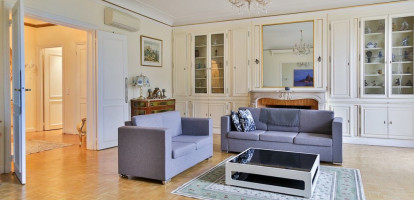


 Français
Français



